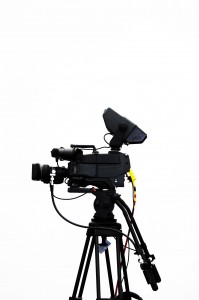
The Minnesota Supreme Court passed an order on Wednesday that will temporarily relax courtroom camera restrictions in criminal trials.
Under the new regulations, media personnel would only need to get a judge’s approval to broadcast or take pictures of criminal court proceedings. The test program will begin on January 1, 2016 and will run for two years before being re-evaluated.
Although cameras will now be allowed in criminal hearings, there are plenty of rules operators must follow. No video or audio coverage will be allowed while the trial is happening, but cameras can be used when a plea deal is about to be reached or when a verdict is being read. Additionally, victims or witnesses would have to give consent to being filmed, and cameras would never be allowed to show jurors. Lastly, if a judge has concerns about the recording devices, he can have them removed from the courtroom, but judges “can’t get rid of cameras just because they don’t want them in the courtroom,” said Senior Hennepin County District Judge Mark Wernick, who chaired the advisory committee that sent the pilot project to the Minnesota Supreme Court for approval.
The state Supreme Court voted in favor of the measure after making some minor changes. They felt that cameras should stay out of a criminal proceeding if it involved a sexual assault, domestic violence, and some specialty cases like veteran and mental health disputes.
Some Oppose Cameras
Some members of the law community were against the change, saying cameras may have some unintended effects in the courtroom. A few people offered concerns that cameras may have an effect on a witness or victim’s willingness to testify.
“We are very much focused on victims and victims’ rights,” said David Brown, chief deputy for the criminal division of the Hennepin County attorney’s office. “We may never really know the extent of the chilling effect. We appreciate the court’s recognition about the victims, but somebody might be able to recognize or identify them even if they aren’t shown on camera.”
Justice Alan Page, who wrote the dissenting view on the order, said it was fundamentally wrong to allow cameras inside criminal cases.
“There will be unfair coverage with or without cameras,” he wrote. “But the judiciary shouldn’t play a role in facilitating such coverage.”
Page, who is retiring later this summer, has been a strong opponent of cameras in the courtroom throughout his tenure on the Minnesota Supreme Court. He voted against a similar measure in 2009 when advocates for cameras said it would help eliminate racial bias in court.
Wernick said he understood Page’s concerns, which is why the program has only been approved on a two-year trial basis.
“It’s just a pilot project,” he concluded. “Let’s see how it goes.”





